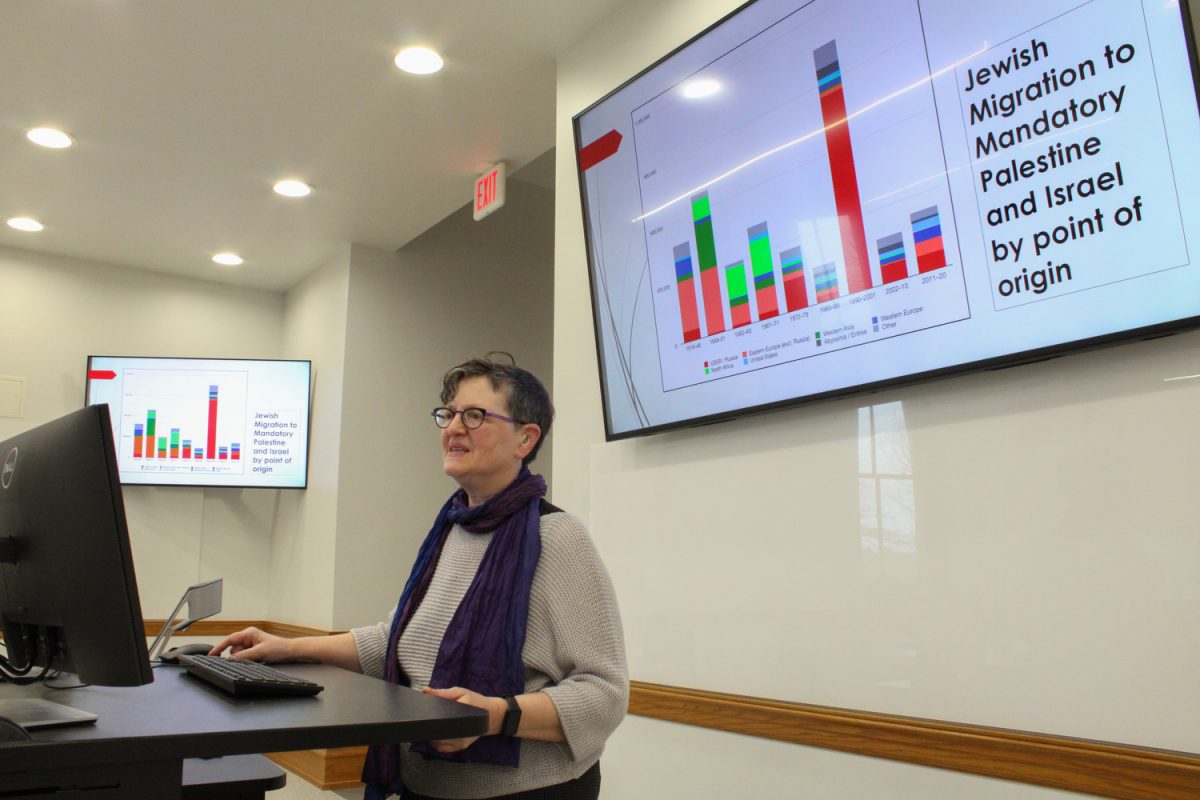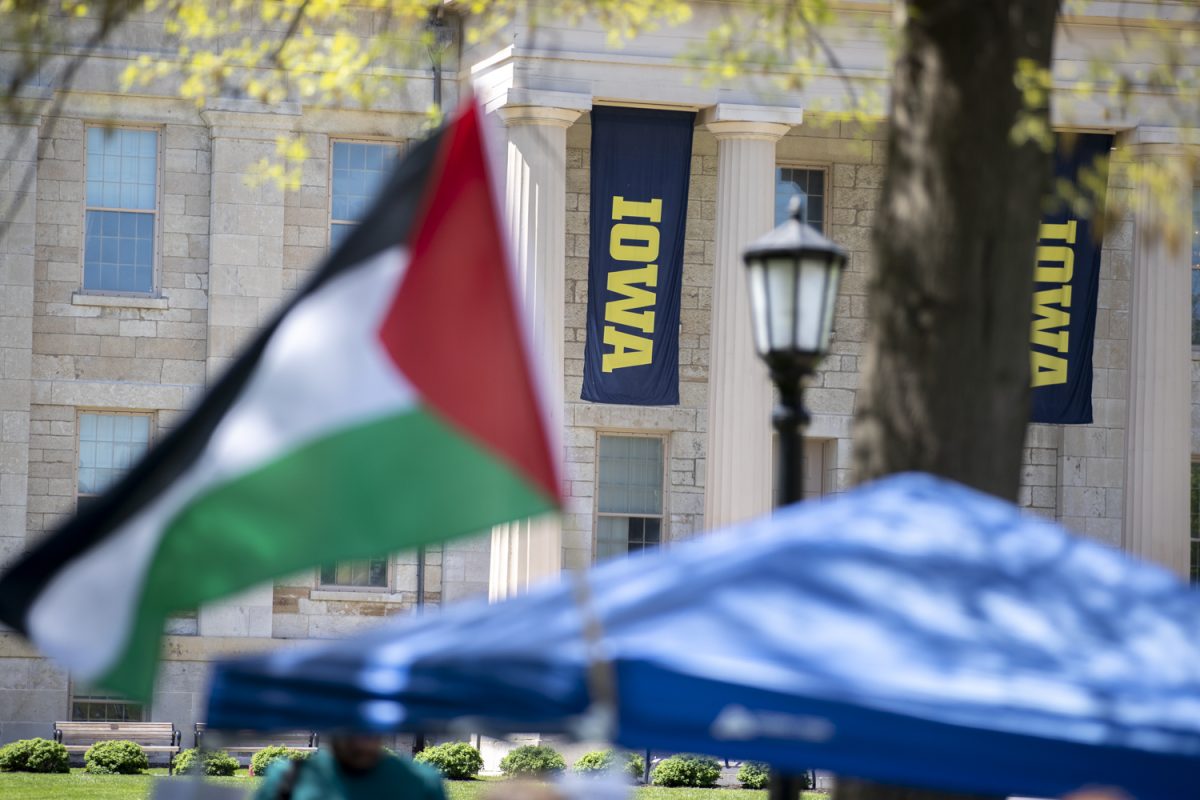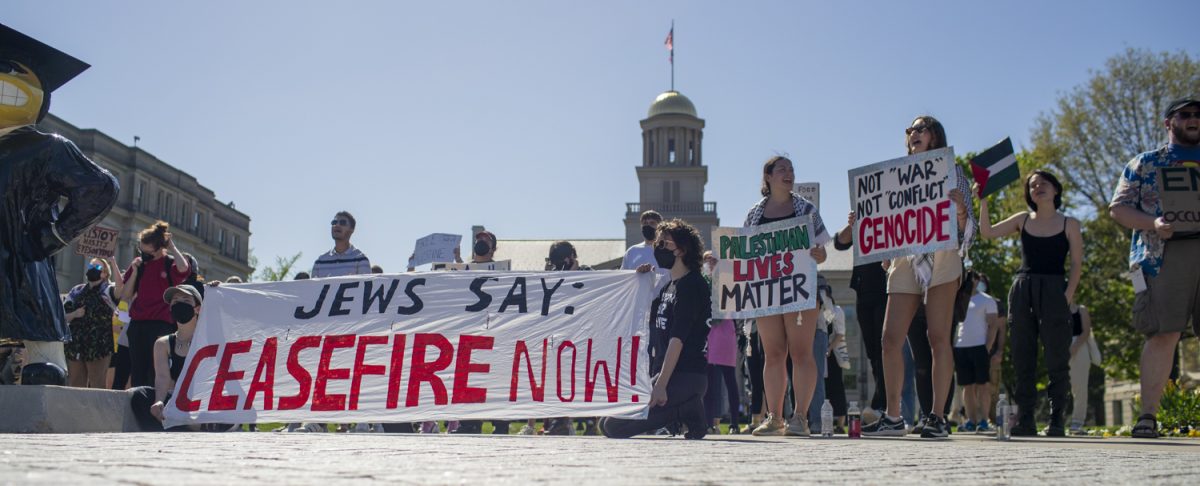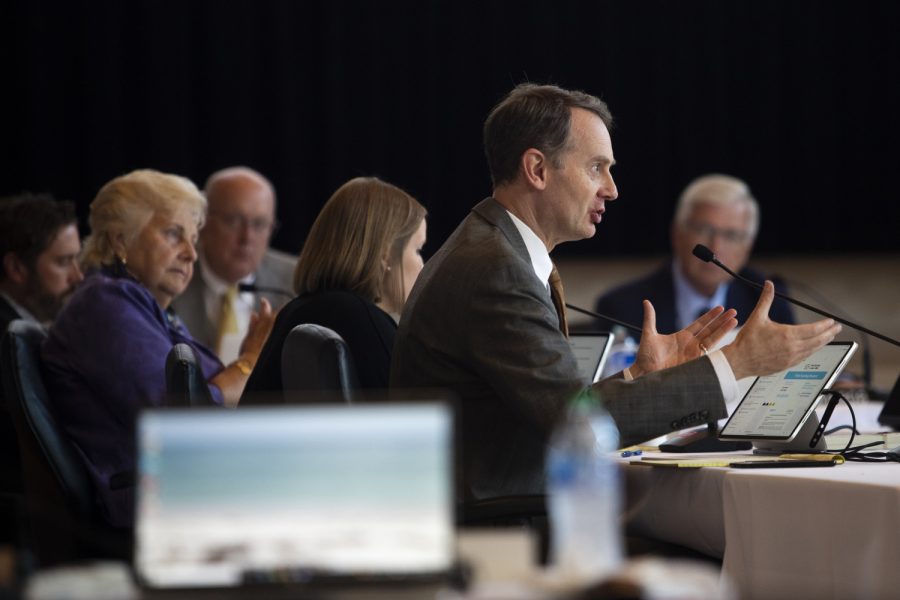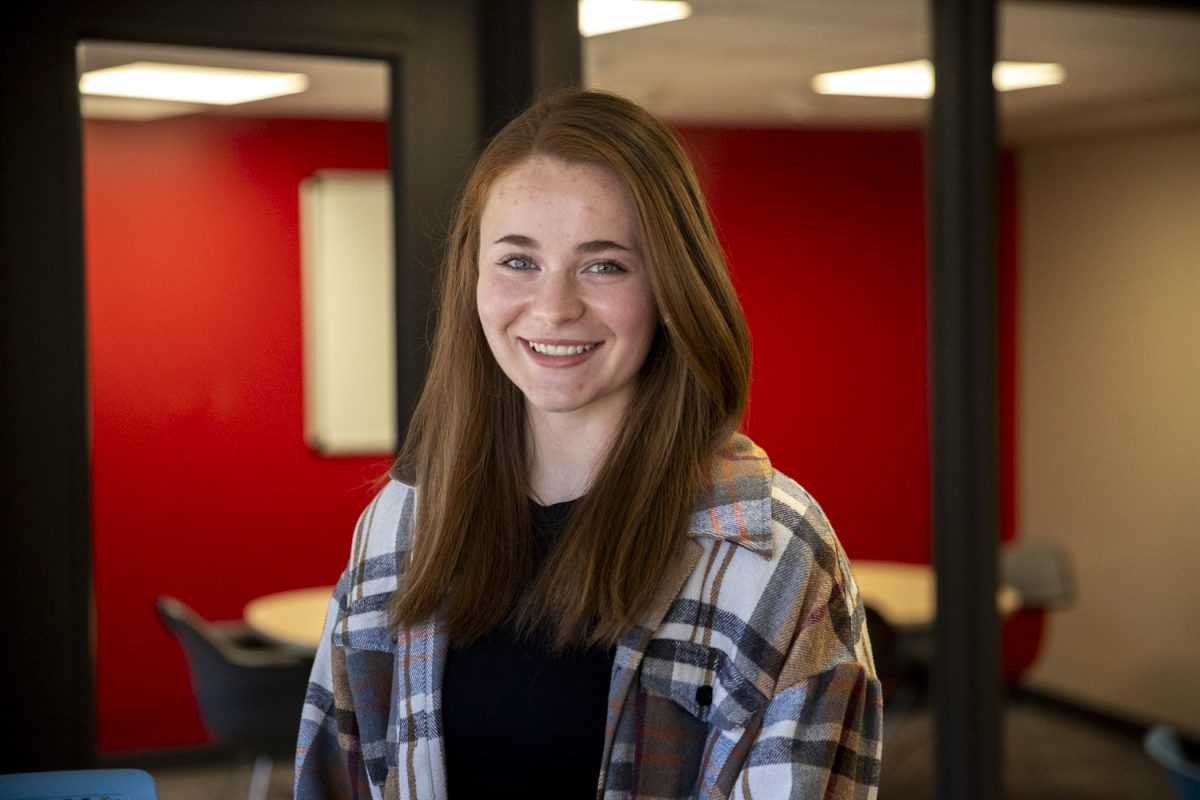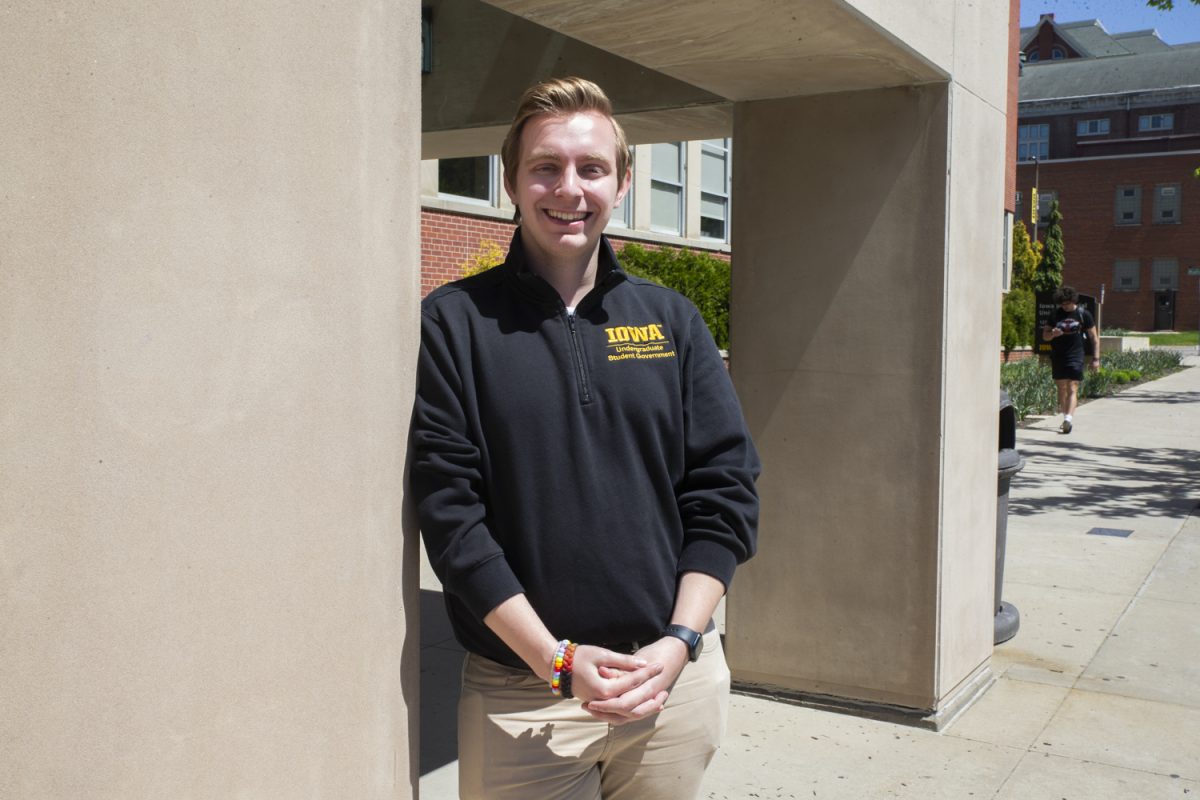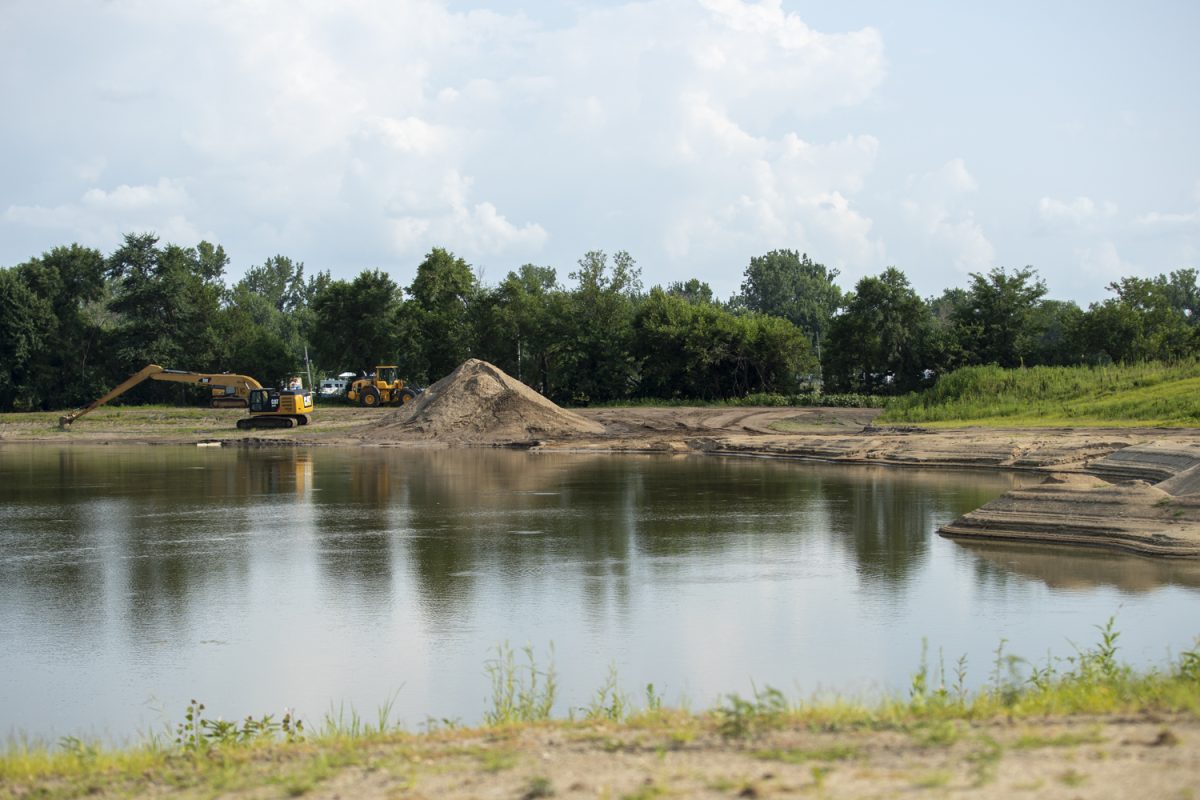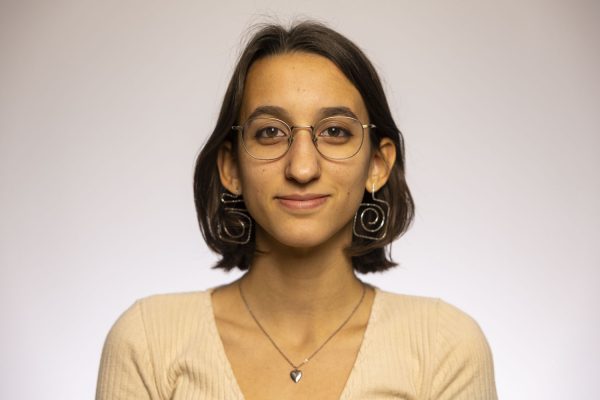A new class in the University of Iowa’s History Department’s Rapid Response History Lecture Series is dedicating a course that analyzes the history of the ongoing Israel-Palestine conflict.
Elizabeth Heineman, UI history and gender, women’s, and sexuality studies professor, who is teaching the segment, said the class, which started on March 19, encompasses the historical perspective on urgent items in the news.
This series will follow seven lectures during the spring semester that span 40- 45 minutes and are followed by a question and answer section to provide free discussion among the students.
Heineman said rather than gaining a particular perspective, she hopes students will be able to learn to think about varied perspectives in light of available research and analysis.
In addition, Heineman said the class will bring in speakers from other departments, such as Ari Ariel, UI director of the International Studies program, as well as guest speaker Abdel Razzaq Takriti, who is an associate professor at Rice University, to offer a variety of perspectives on the issue.
Takriti is a historian who focuses on anticolonialism, revolutions, intellectual and political currents, as well as state formation in the modern Arab world.
While the conflict between Israel and Palestine has been ongoing since 1948, Hamas militants launched a surprise attack on Southern Israel from the Gaza Strip in October, resulting in the death of at least 1,200 people who were primarily Israeli civilians. In response, Israel launched a military campaign in Gaza, killing an estimated 32,782 Palestinian civilians, with 75,298 injured, as of March 31.
“If I have expertise in a topic of public concern, then I should make that expertise easily accessible. Rapid Response History is one way of doing that,” Heineman said. “The current situation in Gaza is, for many people in the region, a matter of life and death. It’s also having huge ripple effects in the United States.”
Heineman’s past research has examined gender, war, and memory in Germany; welfare states in comparative perspective (Fascist, Communist, and Democratic), and the significance of marital status for women.
She said the effects of the war include anything from the upcoming U.S. election, specifically on the candidate’s opinions on the ongoing conflict, to anxieties about the campus climate for the UI community as strong opinions are shared on both sides.
UI first-year student Amman Hassan said even though he showed up to class not exactly sure what to expect, he found it informative. He said the guest speakers and student participation were extraordinary.
RELATED: Iowa lawmakers affirm support for Israel, pro-Palestine protest call for ceasefire
”The professor delivered perhaps the most dense and entrancing lecture I’ve ever heard,” Hassan said.
Heineman said the class will move through sequences from perspectives ranging from history to political science, to the arts, and finally to law.
She said many students wanted to know more about the ongoing conflict. For her, the classroom will create a safe space for discussion and a safe learning environment that will allow students to learn and discuss the topics covered in class in a profound way.
“They’ll hear words like ‘settler colonialism,’ ‘Zionism,’ or ‘Islamic extremism,’ and they want to know,” Heineman said. “They want to unpack these terms, understand what they mean. They want to know the history behind these terms.”




